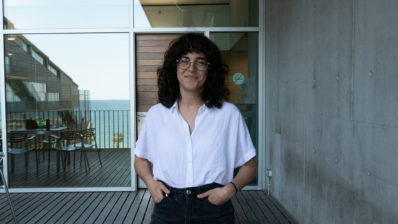March 8 is International Women’s Day.
It is a special day for fighting for something that we should not really need to fight for, because it should be self-evident that a modern society should not overlook anyone and should leverage talent and experience, wherever they may be, irrespective of any other consideration. Unfortunately, this simply does not happen, and this is particularly true of a group that encompasses 50% of the population.
One might expect greater equality to prevail in an area like science, with equal numbers of women and men holding different positions of responsibility. However, we encounter areas of knowledge, such as engineering, where the number of women is very low. In these cases, perhaps the problem lies in social stereotypes, education of the youngsters, and the lack of successful female role models in these fields. These issues must be corrected at societal level.
However, even more worrying is how, in professions in which women tend to outnumber men, as we scale the ladder of responsibility, the number of women dwindles progressively until it reaches a minimum in executive positions (the famous glass ceiling). This clearly points to the existence of a problem.
And why do we need to solve it? There is of course an aspect of equality to which any society must aspire, but I would argue that we are missing out on a good deal of things by not having a greater number of women in positions of responsibility. Science as we practice it is the outcome of 300 years of research or investigation conducted basically by men. Therefore, modern science reflects a male world-view, and there is no way to justify that such a view is the ideal way of doing things. The inclusion of this 50% of society at all levels could change the way that we do science. Offering another perspective will enable science to be better. Therefore, and with a view to improving the way we work, this equality must be obtained.
“We are missing out on a good deal of things by not having a greater number of women in positions of responsibility”
Science as we know it is the outcome of 300 years of research done basically by men. Therefore, modern science reflects a male world-view, and there is no way to justify that such a view is the ideal way of doing things. The inclusion of this 50% of society at all levels could change the way that we do science. Adding other perspectives will make science better. Therefore, and with a view to improving the way we work, this equality must be obtained.
Adding other perspectives will make science better.
While we are still far away from achieving this goal, things have improved in many ways. The scientific community is aware of the importance of getting rid of unconscious biases. Increasingly more women apply for positions as principal investigators and reach positions of greater responsibility. Many research centres, though not all, have implemented equality plans and gender committees. It is true that very few women are directors of research centres or departments, but this will change in the coming years, as a generation in which most of the principal investigators are men gradually retire.
“Very few women are directors of research centres or departments, but this will change in the coming years.”
Nevertheless, and to drive change, specific measures must be applied as soon as the opportunity to hire a female director or manager of a research programme arises. This means looking for competitive female candidates. We cannot excuse ourselves by claiming that no candidates applied; we must establish a policy that clearly indicates that if no excellent women apply for the position then nobody may be hired. This does not mean imposing quotas or recruiting a less competent candidate, male or female. It is about ensuring that there are excellent candidates to choose from during the recruitment. This policy has been applied by the Centre for Genomic Regulation (CRG) in recent years and has yielded excellent results: 4 women hired as principal investigators out of 6 junior group leader vacancies.
But research centres should also support women at other levels, for example PhD students or postdoctoral investigators who have children; enable young female investigators to meet women who have been successful in their work without having to sacrifice their personal life. Unconscious biases in candidate recruitment panels must be eliminated, and these panels must contain a significant number of women. The language used in group leader vacancy announcements must be gender-inclusive to make sure that potential female candidates do not fail to apply.
“What matters most is that university and research centres management truly believe in the advantages of including women in positions of responsibility.”
But perhaps what matters most is that university rectorates and research centres management truly believe in the advantages of including women in positions of responsibility, that they are not measures taken merely to be politically correct, but because they are important and because women contribute to improving science and its institutions.
You can read the whole article here on the CRG website.







